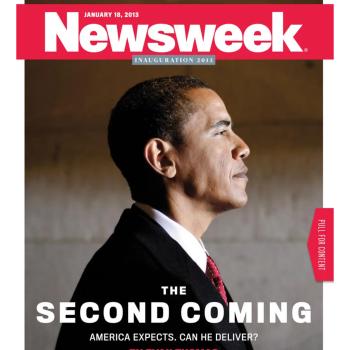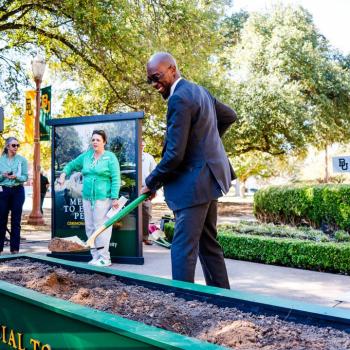Occasionally when I speak and write on race, someone will ask what I think about reparations. Since I now try to be very consistent in narrating the history of race as a history of greed and exploitation, my answer to whether or not we should seek/advocate for reparations is probably pretty obvious: as a moral question, “yes” is the only proper response. I’m sure there are some folks willing to argue about whether or not they are appropriate, but I am not one of those people. I am firmly of the thought that if someone has been stolen from, there ought to be restitution. There are many who have made this case in book-length accounts, which I will draw attention to in this post. As a note, these texts focus on the debt owed to Black people in the United States but that in no way is a statement that other debts do not exist…or that they do not also need to be paid.
The real question and what ought to consume our theological, political and ethical imagination is not whether reparations should be paid, but how they should be paid and who should pay them. There are, at minimum, three significant institutions from which reparations can be demanded.
The first is the government, a case which William Darity and Kirsten Mullen forcefully make in their great book, From Here to Equality. As the institution with the most resources and the one with the most legal responsibility for creating a nation and atmosphere conducive to the exploiting of Black people, the government makes sense as a focus. It is also, as Darity and Mullen affirm, the only institution with the resources to actually pay the debt, which they calculate to be an eye-watering $14 trillion. For scale, the United States’ GDP in 2021 was $23.32 trillion. One can read their book for their reasoning and mobilization but they make a quite compelling case.
Duke Kwon and Gregory Thompson focus particularly on the second institution, the church, based on their understanding of the Christian’s particular moral responsibility to heal wounds, to repair, and to attempt to reverse the death-dealing effects of white supremacy. This approach is especially compelling because it is aimed at a community that is supposed to have the moral imagination and imperative to receive it. One argument against asking this of the government is the fact that it is supremely unlikely to actually happen. I’m convinced, however, that likelihood is subordinate to moral necessity. The church, however, ought to be a community that not only recognizes the moral necessity of reparations, but is also willing to actually do what Christ requires of it.
The third institution consists of a range of business interests. Douglas Blackmon argues that “it was business that policed adherence to America’s racial customs more than any other actor in U.S. society,” alluding to the history of discriminatory lending practices that continued until the 1960s and were propped up by Wall Street throughout that time. Keeanga-Yamahtta Taylor extends that blame even further, outlining the exploitative nature of the public-private partnerships in the housing market after the explicitly discriminatory policies of Jim Crow. Even after the 1960s, businesses engaged in practices and benefited from policies of predatory inclusion rather than explicitly racist exclusion, with the same effects: Black people were often exploited and white pockets were often fattened. The complicity of essentially every major American institution in the exploitation of Black Americans leads to the conclusion that reparations will require more than we are comfortable admitting: it will require at least as much energy and creativity to remedy as were needed to inflict the wound. We must remember that slavery was not merely a southern institution; it was a national one. The wealth of Wall Street did not begin with financialized capitalism; it was fed by the slave market that was housed on that street from 1711-1762. The United States’ wealth as a nation is traceable in large part to cotton, a good only produced through brutal exploitation. The country’s systems of credit were built on the backs of enslaved peoples, viewing them as both labor and capital and in many cases mortgaging them as one would mortgage land. If the major institutions of the nation colluded and commiserated to transform people into profit, repurposing those greedy impulses to human flourishing is going to require widespread systemic change.
Ultimately, reparations—rightly and justly administered—will require a system that does not currently exist. The moral imperative seems to be that we must begin the process of reparations now in the process of bearing witness to a different way of living—as a manifestation of what theologian Antonio González speaks of as systemic change from below. Insofar as the gospel of Jesus Christ is a message of reckoning with sin, turning from it and toward the Lord, and being cosmically reconciled with one’s neighbor and creation, part of our ethical commitment is to resist domination and exploitation in all of their forms. In order both to recognize the wound and heal it, an unquenchable thirst for profit, otherwise known as greed and also often narrated as a necessity for our current economy, will have to be forsaken, since it is precisely the historical and moral evil that precipitates racialization and the violence and exploitation that plagues our history and present. We currently find ourselves in a financialized political economy that obscures these dynamics, yet they still remain. In the light of such national dynamics, the current clarion call is for creativity: the debt is clear and the blood continues to run. We can either stanch the flow, stitch the wound, and form more redemptive and supportive national habits, or we can allow greed and death to continue to wreak the havoc that they have wreaked for centuries.













